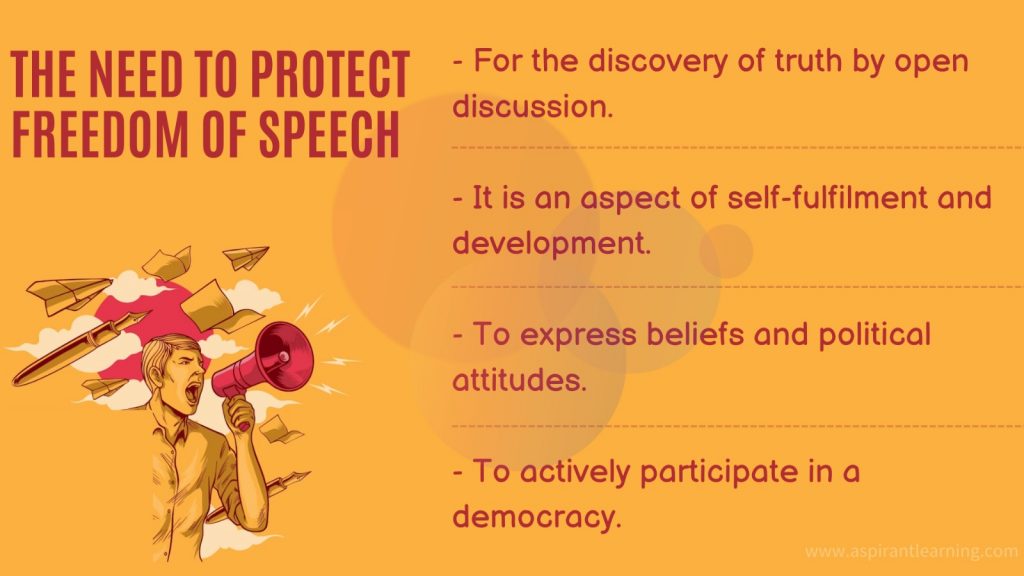News Highlight
Register FIRs against hate speech, even without complaints, Supreme Court directs States.
Key Takeaway
- On April 28, the Supreme Court issued a directive requiring States to suo motu file police reports (FIRs) on incidences of hate speech and take action against offenders without first awaiting a complaint.
- Justices K.M. Joseph and B.V. Nagarathna’s bench declared that all hate speech authors, regardless of their faith, would be subject to the court’s order.
- The court emphasised the need to safeguard the country’s secular nature.
Hate Speech
- About
- Hate Speech is described as an incitement to hatred directed primarily towards a specific group of people based on their;
- Race, ethnicity, gender, sexual orientation, religious beliefs, or other characteristics.
- Thus, hate speech is any word written or spoken, sign, or visible depiction within a person’s hearing or sight to provoke fear, alarm, or instigate violence.
- The National Crime Records Bureau (NCRB) reports a significant increase in cases of spreading hate speech and generating hostility in society.
- Hate Speech is described as an incitement to hatred directed primarily towards a specific group of people based on their;
- Reasons to Curb Hate Speech
- It undermines social equality by upholding historical marginalisation, oppression, and discrimination.
- It is used to provoke violence and injure its victims physically and psychologically.
- It is employed to incite people or society to carry out terrorist attacks, genocides, ethnic cleansing, etc.
- It is a tool for spreading false rumours about specific individuals to spread panic.
- For example, the Northeast exodus.
Legal Position of Hate Speech under IPC
- Sections 153A and 153B of the IPC
- Punishes acts that cause enmity and hatred between two groups.
- Section 295A of the IPC
- Deals with punishing activities intentionally or maliciously offend a group’s religious feelings.
- Sections 505(1) and 505(2)
- Publishing and distributing content that may incite ill will or hatred between different groups is a crime.
Importance of Freedom of Speech and Expression
- This is significant because democracy only works if people can voice their ideas about the government and, if necessary, condemn it.
- People’s voices must be heard, and their problems must be addressed.
- In a true democracy, the people’s opinions must be heard in the political arena and the social, cultural, and economic spheres.
- Democracy is jeopardised in the absence of the liberties above.
- The government will grow far too powerful and begin to serve a select few’s interests rather than the broader public.
- Heavy restrictions on freedom of expression and the free press will generate a fear factor in which people will passively accept tyranny.
- People would feel suffocated in such a situation and would prefer to suffer than share their ideas.
- The freedom of the press is also a significant aspect of the freedom of expression.
- The significance of this right in the Indian context can be recognised because the Preamble guarantees all people the liberty of thought, speech, belief, faith, and worship.
- Liberal democracies, particularly in the West, have a broad conception of free speech and expression.
- There are numerous avenues for people to express their dissatisfaction freely.
- However, most countries have some form of censorship, with most cases involving defamation, hate speech, etc.
- Censorship is often used to avert law and order problems in a country.
Challenges to Hate Speech
- Defining hate speech
- No globally acknowledged definition exists, and norms and expectations range between countries and cultures.
- This establishes clear rules for what constitutes hate speech and what does not challenge it.
- Addressing hate speech in non-English languages
- Hate speech is not confined to English-speaking countries.
- Therefore, identifying and removing hate speech in other languages can be difficult.
- Furthermore, those attempting to moderate content may need to familiarise themselves with cultural and linguistic nuances.
- Lack of resources and legal framework
- Many countries lack the resources and legal framework to combat hate speech effectively.
- This can make it difficult to police laws and regulations and give individuals who indulge in hate speech a sense of impunity.

Way Forward
- Education is the most effective strategy to reduce hostility.
- Our educational system is essential in creating and understanding compassion for others.
- Fighting hate speech cannot be done in isolation.
- It should be debated on a larger stage, such as the United Nations.
- Every responsible country, regional body, and other international and regional actors should address this threat.
- Cases of hate speech can be addressed through Alternative Dispute Resolution.
- It offers a change from lengthy judicial procedures to resolving disputes between parties through negotiation, mediation, arbitration, and/or conciliation.
Pic Courtesy: The Hindu
Content Source: The Hindu



